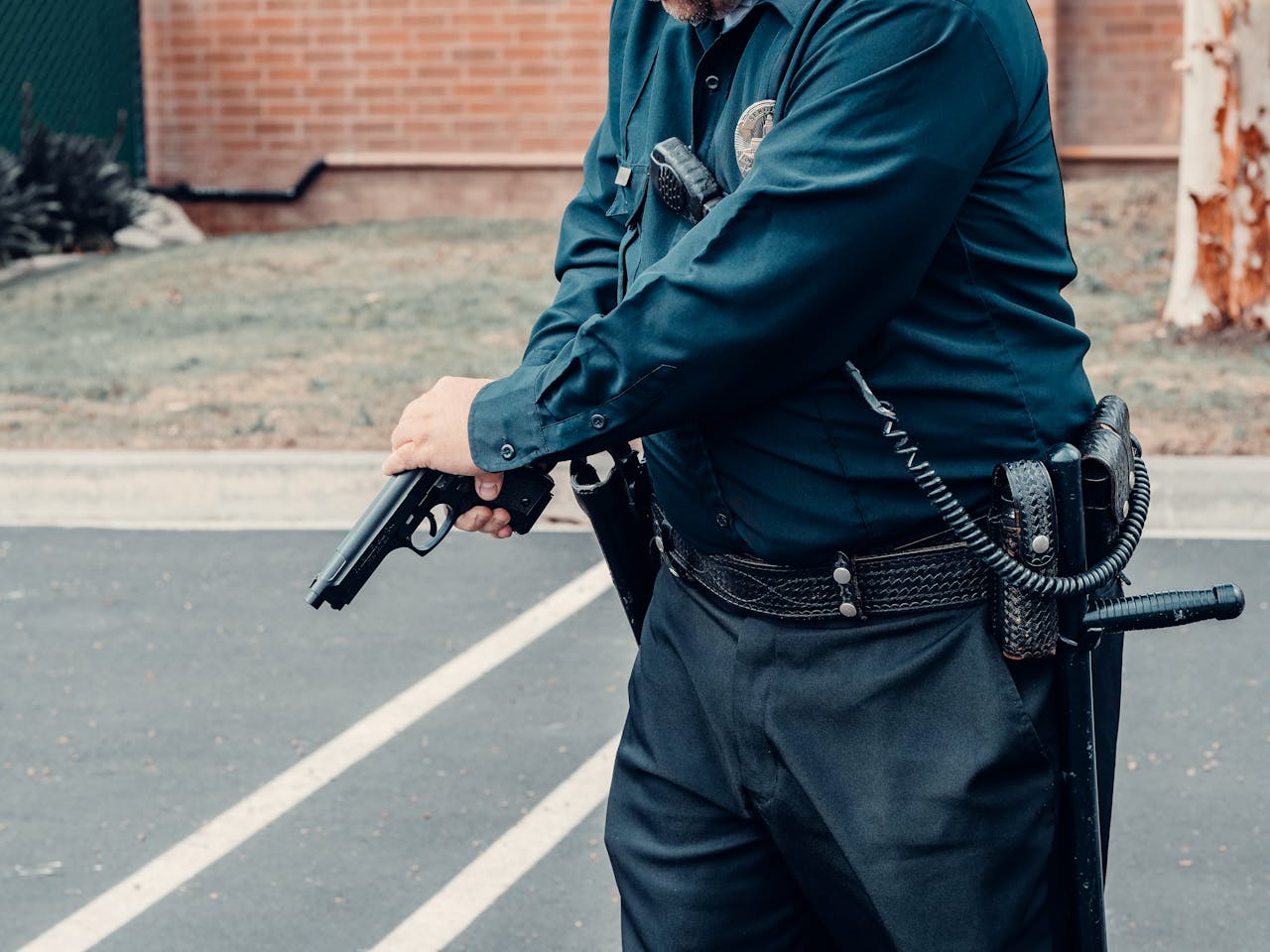
Navigating Colorado’s Gun Laws in 2024: Your Complete Resource for Legal Compliance
Presently, the labyrinthine and ever-evolving character of Colorado’s gun laws 2024 has drawn considerable focus. The Centennial State walks a tightrope, aligning closely with Federal law while infusing bespoke stipulations that mirror its distinct societal and cultural tapestry. It is noteworthy to mention that recent legislative amendments have been instrumental in chiseling out the present-day legal terrain concerning firearms in the state.
Straddling between Second Amendment rights and public safety concerns, Colorado’s gun legislation incorporates rules pertaining to possession, sale, and usage of guns. Spotlight is trained on background checks as well as permit laws for concealed carry, restrictions targeted at specific assault weapons along with high-capacity magazines. Moreover, these statutes delineate crystal clear instructions for gun shows plus private sales – a signal towards an unmistakable pivot towards heightened regulation.
Delving Deeper into the Changes Implemented in the Past Years
The narrative of Colorado’s firearms legislation metamorphosis in the fleeting years is indeed a captivating saga that beckons an all-encompassing analysis. Intriguingly, looming large on this transformative journey is the seminal ‘Prohibition of Assault Weaponry’ instituted with verve in 2024. This edict emboldened a new direction in gun control directives by categorically outlawing the commerce, exchange and ownership of specific semi-automatic firearms christened as ‘assault weapons’, those integrated with detachable magazines among other distinct attributes.
The unveiling of this interdiction against assault weaponry in 2024 was far from being an unchallenged verdict, igniting fervent discourses pivoting around the delicate equilibrium between collective security and personal freedoms. To be noted here – it was after a series of lamentable occurrences that saw its inception, aiming to stem rampant firearm aggression while reducing harm at large. As such, this policy evolution vividly testifies to Colorado’s steadfast commitment towards nurturing a sanctuary characterized by safety through unequivocal and targeted strides towards controlling weapon proliferation.
Grasping the Concept of Concealed Carry Permits in this State
Recent legislative maneuvers have cast ripples through Colorado’s concealed carry permit policy, instigating substantial modifications. It is this policy that delineates the guidelines and rules tethered to a private individual’s entitlement to bear a hidden firearm, commonly within public precincts. As such, it is paramount for the denizens of Colorado to comprehend these adjustments particularly if they desire to exercise their constitutional right to arm themselves.
One particular amendment that has caught attention in relation with this policy is an initiative casually referred as “the mooted gun ban in Colorado”. This proposition essentially imposes heightened restrictions on who qualifies for carrying covert firearms, what sort of firearms fall into the permissible category and where one can brandish said weapons. To thoroughly understand how these alterations could directly influence the process of obtaining concealed carry permits and decipher their connotations, an intricate dissection of this freshly minted legislation is warranted.
- The first aspect of the mooted gun ban in Colorado that requires attention is the stricter criteria for individuals who can qualify to carry concealed firearms. The legislation has proposed rigorous background checks and mental health evaluations, aiming to ensure only responsible citizens are granted this privilege.
- Secondly, the type of firearms permissible under a concealed carry permit have been redefined. Certain types of semi-automatic weapons and high-capacity magazines are now subject to restrictions or outright bans.
- Lastly, there are new specifications on where one can brandish these hidden weapons. Public spaces such as schools, government buildings and places of worship may impose prohibitions against concealed firearms.
To further comprehend these changes in depth:
- One needs to understand that while the Second Amendment guarantees an individual’s right to bear arms, it does not necessarily guarantee unrestricted rights. This amendment seeks to strike a balance between personal freedom and public safety by imposing certain limitations on carrying covert firearms.
- It’s also important for potential applicants for a concealed carry permit to know what kind of training they need before applying. This includes firearm safety courses and live fire exercises which will equip them with necessary skills needed when handling guns.
- Another crucial point is understanding how violations related with this policy will be penalized. Penalties could range from fines, imprisonment or even revocation of permits depending upon severity of violation committed.
In conclusion, grasping the concept behind these changes in Colorado’s conceal carry law helps residents better navigate their rights while ensuring they remain within legal boundaries at all times.
An Overview of Background Checks and Waiting Periods
In the realm of the Centennial State, a careful equilibrium is maintained by laws outlining firearm acquisition. This delicate balance embodies both preserving individuals’ constitutional freedom to bear arms and ensuring public safety’s paramount importance.
A significant cornerstone of this legislation involves thorough background verifications and waiting periods. As per legal stipulations, those aspiring to possess firearms are subject to rigorous background scrutiny. The objective behind these checks is confirming that potential gun owners do not carry any obstructive factors like criminal records or disqualifying mental health issues which could lead to misuse of firearms.
The notion of waiting periods also carries substantial weight within Colorado’s firearm policy framework. Though there exists no state-mandated waiting period in Colorado, it would be misleading to infer that one can swiftly claim ownership over a firearm after purchase completion. In practice, the duration required for processing a background check often substitutes as an implicit waiting period.
Adding another fold into this complex fabric is the question – “Is it possible to wield a firearm in Colorado without obtaining a permit?” Here lies another intriguing facet – ‘shall-issue’ policy followed by Colorado for concealed carry permits where citizens must satisfy specific legal prerequisites before earning their rights. Henceforth, while bearing firearms is permitted legally in Colorado, such permission does not come without its stringent due diligence.
Understanding the Restrictions on Assault Weapons and Large Capacity Magazines

Does Colorado embrace the firearm culture? This perplexing question frequently stirs debates concerning limitations on assault weapons and high-capacity magazines. Much like numerous American states, Colorado has found itself wrestling with the socio-political consequences of gun control, culminating in a somewhat intricate scenario. Presently, there is no ban on owning or transferring assault weapons within the state’s borders – this can encompass certain semi-automatic firearms. On the flip side though, there exists a restriction when it comes to large capacity magazines; legislation currently caps magazine size at 15 rounds.
Hovering within this regulatory constellation, the state demonstrates adaptability and positions itself as mildly hospitable towards those fascinated by firearms. Nonetheless, such an approach doesn’t turn a blind eye to potential mishaps resulting from misuse. The laws are designed to delicately balance freedom and safety – their goal being to promote responsible usage of firearms whilst upholding Second Amendment rights. Although directives regarding assault weapons appear largely permissive for now, imposing limits on magazine capacity showcases Colorado’s dedication in curtailing possible acts of violence and casualties.
Exploring the Regulations Surrounding Gun Shows and Private Sales
In the realm of the Centennial State, gun show and private sale regulations stand as both rigorous and unique. Gun stores, bound by federal licensing obligations, operate under a different set of rules compared to gun shows. This variance has stirred up quite a dust storm in terms of debate; lobbyists make their case that this could potentially pave way for individuals to sidestep mainstream avenues when purchasing firearms.
It must be highlighted that it is not incumbent upon unlicensed sellers per federal law to conduct background checks. The state however presents a contrasting narrative where all sales and transfers inclusive of those happening at gun shows are subjected to obligatory background checks – an edict laid down by the state legislation.
Turning our attention towards private sales, they too have been neatly tucked into a well-structured framework sculpted by local laws. All privately sold firearms come with an attached condition – mandatory background check – aimed at maintaining public safety. Prioritizing legality over transaction completion becomes essential for the seller i.e., ensuring the buyer is legally authorized to own a firearm before any deal can be sealed.
Non-compliance with these established norms can invite severe legal consequences. These collective regulations serve as steering mechanisms controlling and directing the trajectory of firearms within state boundaries aiming at reducing possible threats and instances involving firearm violence.
Insights on the State’s Stance on Open Carry Laws
Within the confines of the Centennial State, open carry laws continue to swirl in a vortex of continuous deliberation. Indeed, these regulations sketch out the boundaries that outline an individual’s right to ostentatiously bear firearms within public arenas. Intriguingly, the exact details can oscillate wildly from one jurisdiction to its neighboring counterpart.
To illustrate, while overarching state law may lay down a generalized scaffolding for open carry rights, local municipalities hold in their grasp the freedom to tighten these reins with more stringent policies – all in pursuit of tranquility and communal safety.
Intricately woven into this complex tapestry are exceptions carved out within these open carry laws for specific groups such as law enforcement officials or those wielding antique firearms. A point deserving equal weight is distinguishing between open carry legislation and concealed carry counterparts; possessing a permit for one does not provide carte blanche clearance for both. Absorbing both sets of rules into your legal understanding is pivotal in avoiding missteps and potential punitive measures.
The elaborate dance between personal freedoms and societal protection is delicately choreographed by The Centennial State’s open-carry statutes – offering thought-provoking insights into the ongoing symphony surrounding firearm discourse.
FAQ
Encompassed within this article is a thorough rundown of current laws, which are prone to shifts as time unfolds. To stay abreast of these changes, it’s pivotal to refer regularly to trusted local or state law enforcement agencies or legal counsel.
Several amendments have taken effect in recent years. This piece delves into these modifications comprehensively. Nonetheless, for the most precise and up-to-date knowledge, consulting relevant authorities is recommended.
Concealed carry permits signify state-granted licenses permitting individuals to bear concealed firearms personally. Within this text lies an exhaustive encapsulation of permit procedures and requisite conditions specific to this region.
Prospective firearm owners must comply with mandatory background scrutiny and abide by a stipulated waiting period as per state provisions. The process specifics, duration details among other related data can be procured from this document.
Aye! Regulations exist limiting the usage of assault weaponry alongside high-capacity ammunition containers. An insightful comprehension of such restrictions can be gathered from studying this written piece.
The regional authority has set forth clear-cut laws overseeing firearm transactions during exhibitions or private deals; comprehensive insights into which are articulated extensively within our text.
The perspective upheld by our region concerning open-carry legislations varies subject to specific contexts as well locations . In-depth understanding about their present interpretation along with governing rules for open-carry are laid out extensively in this article.

